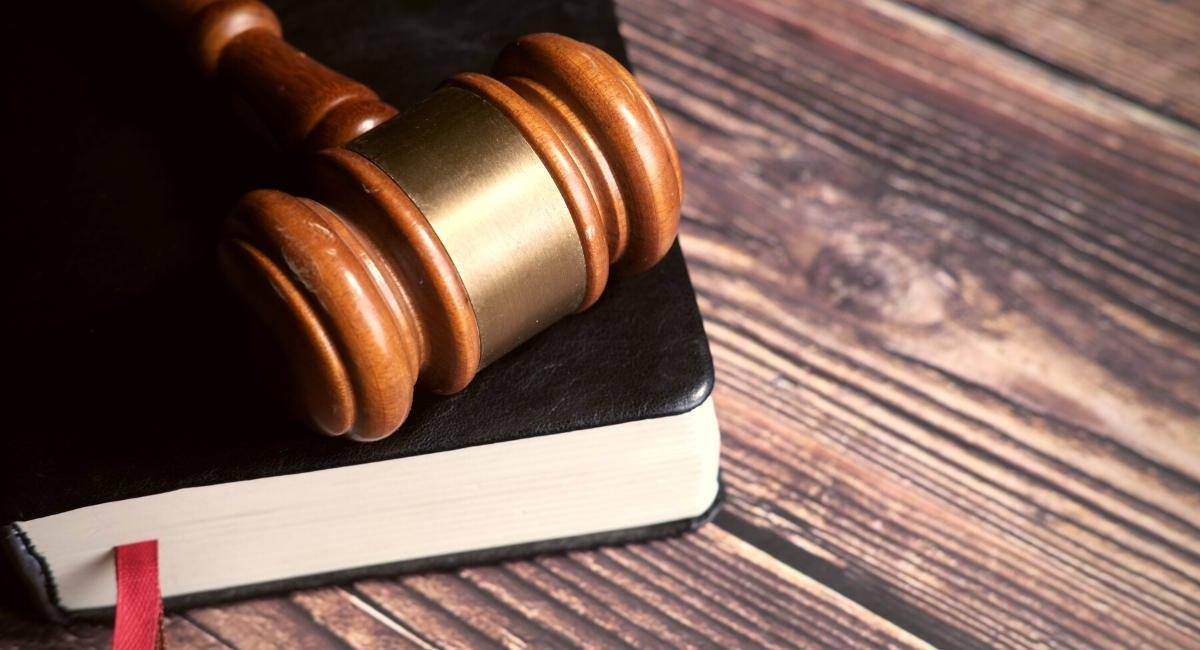A Preliminary Hearing is required in every felony case in Texas, especially federal charges. The purpose of these hearings is to test the sufficiency of the evidence to determine whether the case should continue.
A preliminary hearing is required to be held within 10 days of an alleged offender’s arraignment, but many alleged offenders often allow the hearing to take place later. The process can be incredibly important, so it is usually advisable that any alleged offender have a criminal defense attorney.
Preliminary Hearings Defense Lawyer in Plano, Allen, Frisco, and McKinney, TX
If you are preparing for a preliminary hearing in Plano, or any of the surrounding areas in Texas, including Allen, Anna, Blue Ridge, Carrollton, Celina, Copeville, Dallas, Fairview, Farmersville, Frisco, Garland, Josephine, Lavon, Lowry Crossing, Lucas, McKinney, Melissa, Murphy, Nevada, New Hope, Parker, Princeton, Prosper, Richardson, Royse City, Sachse, Saint Paul, Van Alstyne, Weston, or Wylie, contact the Law Offices of Richard C. McConathy. Our firm has decades of experience dealing with these kinds of situations.
Attorney Richard McConathy will work tirelessly to help you achieve the most favorable possible outcome for your case. Contact the Law Offices of Richard C. McConathy at (469) 304-3422 about your case.
Preliminary Hearing in Texas
During the preliminary hearing, the prosecution must show that they have enough evidence to prove that a crime has been committed and that the defendant is most likely the one who committed it. If the prosecution is able to prove this, the case will move to trial. If they are unable to prove this, the case can be dismissed.
The court will hear arguments and see evidence from both sides. The prosecution will attempt to present evidence that is substantial enough to have the defendant stand trial.
During this time, the prosecution can show physical evidence, as well as call witnesses to the stand to testify. The defense will seek to convince the court that the prosecution has insufficient evidence and the charges should be dropped. To do this, they can present evidence of their own, as well as cross-examine the prosecution’s witnesses.
Under Texas Administrative Code § 146.6, upon request, the Board or the Board’s scheduling staff shall schedule a preliminary hearing unless:
- more than 14 calendar days have elapsed from the time that the warrant is executed; or
- information has not been presented to the Board or the Board’s scheduling staff that the releasee was served with the following:
- notice of the right to a preliminary hearing and that its purpose is to determine whether there is probable cause or reasonable belief to believe the releasee has committed a parole violation;
- written notice of the allegations of parole violation against the releasee;
- notice of the right to full disclosure of the evidence;
- notice that releasee has the opportunity to be heard in person and to present witnesses and documentary evidence;
- notice that the releasee has the right to confront and cross-examine adverse witnesses unless the Hearing Officer specifically finds good cause for not allowing confrontation of the witness;
- notice that the case will be heard by a parole panel or designee of the Board;
- notice that the releasee has the opportunity to waive in writing the right to either or both of the preliminary and revocation hearings, with the additional understanding that, if the releasee waives the revocation hearing, the Board will in all probability revoke; and
- notice that the releasee has the right to retain an attorney and the conditional right to an appointed attorney.
A warrant is executed if:
- the releasee is arrested only on a charge that the releasee has committed a violation of a condition of parole or mandatory supervision and is not charged before the 41st day with the commission of an offense; or
- the sheriff having custody of the releasee notifies the division that the releasee has discharged the sentence or that the prosecutor has dismissed the charge under Article 32.02, Code of Criminal Procedure.
If the Board or the Board’s scheduling staff receives a request for a preliminary hearing later than the 14th calendar day following the provisions described in subsection (a)(1) of this section, the Board or the Board’s scheduling staff shall require the requestor to provide an explanation of the delay.
Texas Administrative Code § 146.6(a)(1) does not apply when a releasee is:
- transferred under Section 508.284, Government Code to a correctional facility operated by or under contract with the department; or
- returned to custody from another state, a federal correctional institution, or a medical or psychiatric facility.
In cases under Texas Administrative Code § 146.6(d), a preliminary hearing shall be held within a reasonable time.

Pretrial Motions in Texas
At the preliminary hearing, the judge will also determine what evidence will be admissible in court. If the trial does go to court, most of the evidence and witness testimony will have to be presented again. During this hearing, your defense attorney can severely weaken the prosecution’s case by filing pretrial motions that can lead to the suppressing of evidence or witness testimonies. If a pretrial motion is successful, it may make substantial pieces of evidence inadmissible in court, leaving the prosecution’s case extremely depleted.
It is important to understand that the defendant’s guilt or innocence will not be decided at the preliminary hearing. The purpose of the hearing is to determine whether or not there is enough probable cause or evidence for the defendant to stand trial for the alleged offense.
Texas Code of Criminal Procedure § 28.01 establishes that the court may set any criminal case for a pre-trial hearing before it is set for trial upon its merits, and direct the defendant and his attorney if any of record, and the State’s attorney, to appear before the court at the time and place stated in the court’s order for a conference and hearing. The alleged offender must be present at the arraignment, and their presence is required during any pre-trial proceeding.
The pre-trial hearing shall be to determine any of the following matters:
- Arraignment of the defendant, if such be necessary; and appointment of counsel to represent the defendant, if such be necessary;
- Pleadings of the defendant;
- Special pleas, if any;
- Exceptions to the form or substance of the indictment or information;
- Motions for continuance either by the State or defendant; provided that grounds for continuance not existing or not known at the time may be presented and considered at any time before the defendant announces ready for trial;
- Motions to suppress evidence–When a hearing on the motion to suppress evidence is granted, the court may determine the merits of said motion on the motions themselves, or upon opposing affidavits, or upon oral testimony, subject to the discretion of the court;
- Motions for change of venue by the State or the defendant; provided, however, that such motions for change of venue, if overruled at the pre-trial hearing, may be renewed by the State or the defendant during the voir dire examination of the jury;
- Discovery;
- Entrapment; and
- Motion for appointment of an interpreter.
When a criminal case is set for such pre-trial hearing, any such preliminary matters not raised or filed seven days before the hearing will not thereafter be allowed to be raised or filed, except by permission of the court for good cause shown; provided that the defendant shall have sufficient notice of such hearing to allow him not less than 10 days in which to raise or file such preliminary matters. The record made at such pre-trial hearing, the rulings of the court and the exceptions and objections thereto shall become a part of the trial record of the case upon its merits.
The notice must be sufficient if given in any one of the following ways:
- By announcement made by the court in open court in the presence of the defendant or his attorney of record;
- By personal service upon the defendant or his attorney of record;
- By mail to either the defendant or his attorney of record deposited by the clerk in the mail at least six days prior to the date set for hearing. If the defendant has no attorney of record such notice shall be addressed to the defendant at the address shown on his bond, if the bond shows such an address, and if not, it may be addressed to one of the sureties on his bond. If the envelope containing the notice is properly addressed, stamped, and mailed, the state will not be required to show that it was received.
Collin County Resources for Preliminary Hearings
Preliminary Hearing | USAO | Department of Justice — View this article from the Offices of the United States Attorneys. Preliminary hearings must be held within 14 days of the initial appearance if the alleged offender is being held in jail. If the defendant is out on bail, it must be scheduled within 21 days of the initial appearance.
Rule 5.1. Constitutional Challenge to a Statute – Legal Information Institute — This page discusses Rule 5.1 of the Federal Rules of Criminal Procedure. When an alleged offender is charged with an offense other than a petty offense, a magistrate judge must conduct a preliminary hearing unless the alleged offender waives the hearing; the alleged offender is indicted; the government files a piece of information under Rule 7(b) charging the alleged offender with a felony; the government files an information charging the alleged offender with a misdemeanor, or the alleged offender is charged with a misdemeanor and consents to trial before a magistrate judge. The magistrate judge must hold the preliminary hearing within a reasonable time, but no later than 14 days after the initial appearance if the alleged offender is in custody and no later than 21 days if not in custody.
Find A Collin County Attorney for a Preliminary Hearing | Law Offices of Richard C. McConathy
Contact the Law Offices of Richard C. McConathy today for a consultation about a preliminary hearing in Collin County in Texas. Richard McConathy is an experienced criminal defense attorney who will make every effort to find applicable defenses in your particular case to have your charges reduced or even dismissed.
Contact the Law Offices of Richard C. McConathy right now at (469) 304-3422 or contact us online for a free consultation. We also serve the surrounding counties of Denton County, Wise County, Kaufman County, Dallas County, Grayson County, Rockwall County, Johnson County, Ellis County, and Parker County.


